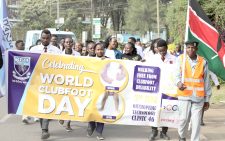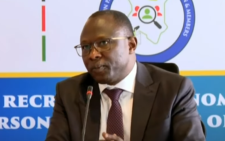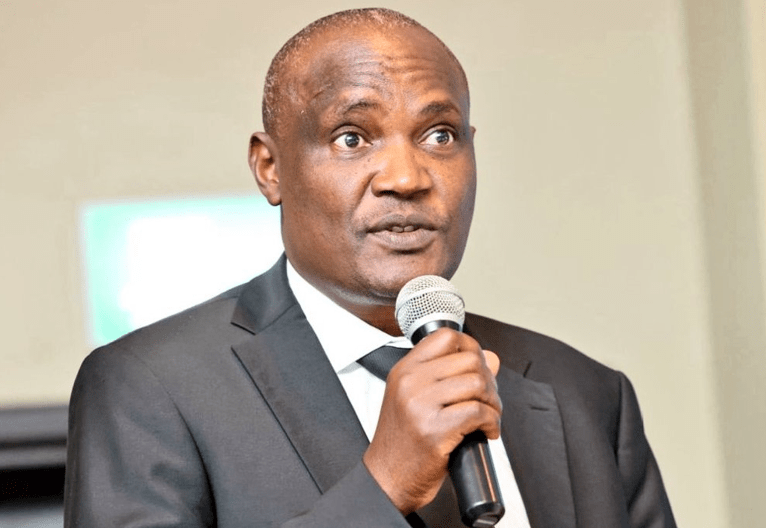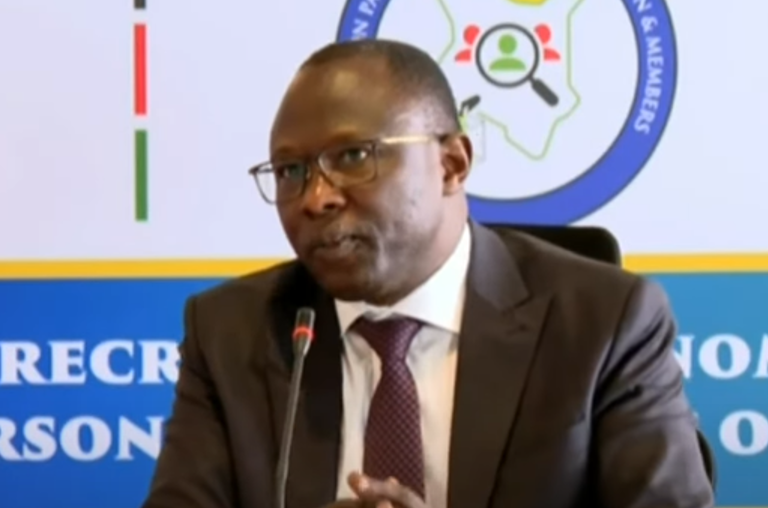Patient, medics seek answers over stubborn long-haul TB treatment
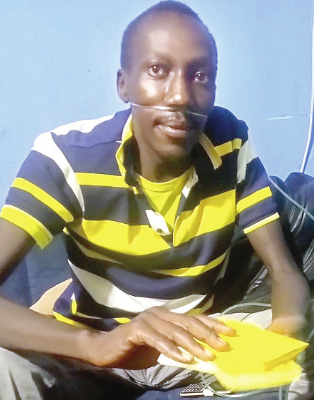
n a span of five years, 2016-2021, George Chege had visited four health facilities including the region’s biggest public referral hospital, Kenyatta National Hospital.
And the journey of a Tuberculosis life, which Chege says is headed to nowhere kicked-off.
“All I want to know is what’s this disease that I am being treated for eight years now I have been swallowing TB drugs, yet there’s no change,” asserts a man, barely 40 years old as he arranges hospital documents in the chronology of the dates he has visited health facilities.
He pulled another package from a bag and displayed a heap of drugs.
Conveniently stationed in the same room in his house in Ndaragweti village in Sipiri, Laikipia county is an oxygen concentrator.
And as if eight years with TB is not enough tribulation for one man, Chege’s life depends on electricity.
Concentrator
To demonstrate this, he unveils the portable oxygen concentrator that has become part of his must-carry medical equipment. It emerged that Chege has only one functional lung after the left one was completely damaged, and hence the need for external support to breathe.
The concentrator weighs 11 kilos, and he has to carry it everywhere he goes in case of any emergency.
“You can imagine going around with this machine on my back and wherever I am every minute!” he posed. The concentrator is charged by power.
“We have never had power in this village since time immemorial,” he said, demonstrating the reason he installed a solar system in his house for purposes of charging the concentrator.
However, the machine takes up too much power that cannot be supplied by the solar in his house.
Chege therefore has to visit the health facilities frequently to charge the machine.
TB is a highly infectious respiratory disease that can kill in the shortest time in a situation where oxygen is limited. “For eight years they have only been pushing TB drugs to me. He says of the healthcare workers that attend to him…what are they treating? He questions. Where are we headed to, yet they say TB is treatable,” Chege said this as he gasped for breath.
Tests confirmed
National TB Champions Network Coordinator, Steve Anguva on Chege’s revelation that he has been taking TB drugs for the last eight years, asserts that’s illegal as treatment of the strain of TB he is suffering from only runs for six months since they did not confirm that it’s drug resistant. The WHO stipulates that ….
“It is Illegal to use TB drugs for more than the required duration,” Anguva spoke to this publication. “The drugs have heavy side effects and can cause resistance.”
First, Anguva argues that nobody should be given TB drugs until tests have been done and confirmed the patient is battling TB.
“I haven’t heard of such a case of TB treatment that goes for this long,” he said, further arguing that even the Worst TB which is XDR TB’s treatment is for a maximum of three years.
“So it’s important that the doctors should come out clearly and clarify what they are treating,” Anguva said, noting that Chege’s testimony can be used to build a case for advocacy.
Chege’s hospital documents show that he has seen a number of specialists since the TB condition was first suspected in 2016. He weighed 65kg three months prior to his first hospital visit. Within that period, Chege reveals that he was coughing constantly, experiencing episodes of sweating at night and all those symptoms of the disease accompanying. He lost about 10kg, and was weighing 56.
First, he visited Nazareth Hospital in Banana, Kiambu County in 2016, and for several months he honoured the numerous appointments. But somewhere along the way, the specialist there referred him back to Ndideka health centre in Sipiri, Laikipia the local health facility in Chege’s home to have the history of his condition traced from there.
“In 2018, I knocked at Ndideka health centre but they still could not treat me. Shortly after, in 2021, I was referred to Mbagathi Level 5 Hospital in Nairobi for a specialised Lab test,” he said, fetching a document indicating the dates and summary of a specialist.
And on January 31, 2024, a doctor at the Mbagathi County Referral Hospital’s chest clinic saw the patient and diagnosed him. “It shows Post Pulmonary Tuberclosis, Chronic Obstructive Pulmonary Disease, Post Tuberclosis relapse among others,” the doctor wrote, and indicated that the patient’s consultation was made as an emergency.
Chest clinic
In the same year Chege was referred to KNH, where he was initiated on TB treatment again the fourth time.
“All of these doctors I have seen are making different observations. I am confused and not sure whose advice to follow,” he said with a distant look, but hopeful face.
For Evaline Kibuchi, the head of Stop TB Partnership-Kenya, if a patient is treated more than once for the same disease with no improvement, it should be a sign that the patient could be suffering from another lung condition other than TB or in addition to TB.
“It is for this reason that the National TB program with her partners is expanding the scope to include all lung health conditions in addition to TB,” Kibuchi said.
Back in his village, a small settlement scheme of 137 households, covering three acres each, Chege believes there’s a TB patient in each home.
“I know more than 10 people who are currently taking TB drugs, and each of them knows one or two more neighbours, treating the same disease,” he said in what’s likely to raise alarm if there could be an unchecked spread of the disease.
